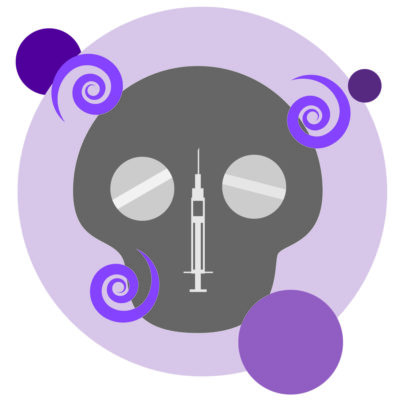 True Freedom Comes Without Substances!
True Freedom Comes Without Substances!
Substance use disorders involving psychoactive substances not only lead to addiction but also cause numerous other health problems and are associated with negative behavioural and lifestyle changes. In such cases, the user not only endangers themselves but also has a harmful impact on their environment and the quality of their social relationships.
Some psychoactive substances are discussed in separate sections (e.g., tobacco and alcohol in their respective chapters). In this section on substance use, we summarize the risks associated with the most commonly used illegal drugs in our country—cannabis and stimulant drugs—as well as the dangers of using sedatives, sleeping pills, and anxiolytics.
Cannabis (Marijuana/Hashish/THC/“Weed”)
Cannabis is an illegal soft drug that can lead to addiction when used regularly.
In addition to insomnia, cravings, and irritability, cannabis use may cause the following harmful effects and disorders:
- Loss of Motivation: Users gradually lose the drive to study, work, or maintain social relationships. They lack the desire to go out, set new goals, or form new connections, leading to a progressively narrower lifestyle.
- Drug-Induced Psychosis: In some cannabis users, the drug’s effects on the nervous system can trigger delusions and hallucinations. Its consumption increases the risk of accidents and suicidal tendencies, and in cases of acute mental disturbance, psychiatric treatment may become necessary.
- Persistent Perception Disorder: In some cases, cannabis use can lead to hallucinations that reoccur even without further drug use. This lasting perceptual disorder can develop even after a single use.
Stimulants/Party Drugs
Dealers promote various party drugs with promises of temporary euphoria and high energy, but due to their destructive effects on the body, it is best to stay away from them entirely. This category includes ecstasy, amphetamines, and new synthetic stimulants such as cathinone derivatives (e.g., mephedrone/”Kati,” MDPV/”Zene,” 4-MEC, pentedrone, alpha-PVP, etc.).
The use of stimulant drugs is illegal, even in small amounts. Many users develop addiction, experiencing both psychological and physical withdrawal symptoms when they stop. These symptoms often include intense cravings, hand tremors, sweating, and insomnia. Even short-term use poses serious risks, including seizures, while overdosing can be fatal, typically due to overheating, cardiovascular failure, muscle breakdown, or respiratory arrest.
Sedatives, Sleeping Pills, and Anxiolytics
Most commonly used sedatives, sleeping pills, and anti-anxiety medications belong to the benzodiazepine family. Therefore, this section focuses primarily on benzodiazepines (although similar risks apply to other drugs with comparable effects).
Benzodiazepines are chemical compounds with sedative, muscle-relaxant, and anxiety-reducing effects. They are frequently prescribed to elderly patients for sleep disorders and are present in many tranquilizers and anxiolytics. However, medication should only be used when absolutely necessary, and mental health issues such as mood disorders, insomnia, and anxiety should ideally be addressed through psychotherapy first. If these medications are not taken according to a doctor’s instructions, their therapeutic benefits diminish, and they become harmful, addictive substances instead. Cravings develop with misuse.
Toxicology wards admit far more cases of medication overdose than illicit drug overdoses.
With prolonged use, tolerance builds up, requiring higher doses to achieve the same effect. As the dosage increases, so do the risks, including stronger side effects and potential poisoning. Benzodiazepine withdrawal cannot be abrupt, as it causes severe withdrawal symptoms. Discontinuation should only be done gradually under medical supervision.
Quitting and Recovery
For long-term success, addressing the underlying causes of addiction—whether physical or psychological—is crucial.
Understanding one’s motivation for substance use is essential, as it may stem from:
- Seeking enhanced experiences
- Escaping daily struggles or personal issues
- Increasing social enjoyment
- Peer pressure
- Expanding consciousness or improving self-awareness
- Managing pain, sleep disorders, or anxiety
- Treating other medical symptoms
If you suspect that you or a loved one is struggling with substance dependence, seek help from a general practitioner, clinical psychologist, or psychiatrist.
You can also access anonymous expert support through the following link.